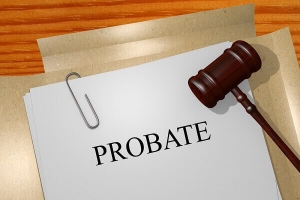
9 Issues That Need to Be Addressed during Probate in Florida
1. Transferring Bank Accounts
Whether your loved one used beneficiary designations in his or her checking and savings account documents to transfer ownership at the time of death or transfers are being made pursuant to the terms of his or her will, you will need to contact the bank in order to complete the transfer process. Banks will typically require proof of death prior to conducting a transfer (understandably, banks take requests to transfer accounts very seriously), and they may request a copy of the decedent’s will and other documentation as well.
2. Transferring 401(k)s, IRAs, 529 Plans, and Securities Accounts
The same is generally true for 401(k)s, individual retirement accounts (IRAs), Roth IRAs, pensions, health savings accounts (HSAs), and non-retirement securities accounts. Likewise, if your loved one had a 529 college savings plan, his or her 529 account will need to be transferred as well. The procedures and requirements for transferring each type of account may be slightly different. And if your loved one was receiving retirement distributions or pension payments at the time of death, there will be specific forms that you need to file.
3. Recording Deeds for Real Estate
Transferring ownership of real estate requires the use of a formal legal document known as a “deed.” For transfers at death, Florida requires use of a special form called a Personal Representative’s Deed. The deed must be executed by the decedent’s personal representative and the transferee. Once signed, the deed must be filed with the appropriate county records office. Only after the deed has been properly recorded will the transfer be fully complete.
4. Transferring Vehicle and Boat Titles
Just as transferring ownership of real estate requires the execution of a deed, transferring ownership of vehicles and boats requires a “transfer of title.” A title is a legal document that signifies ownership of a vehicle or boat. And while it is possible to transfer ownership without signing over title, there are various limitations to doing so. Once the title has been located, transferring title is a straightforward process, although someone will need to take the title and other required documents to the Florida Department of Highway Safety and Motor Vehicles (FLHSMV) to complete the transfer and re-register the vehicle or vessel.
5. Transferring Digital Assets
These days, estates often include various types of digital assets. From music and photo libraries to cryptocurrency “wallets,” personal representatives, heirs, and beneficiaries must ensure (to the extent possible) that all of these assets are addressed during the probate process. The steps required to transfer digital assets vary depending on the specific type of asset or account – and whether the decedent’s access credentials are known – and different companies have different rules for transferring ownership of online accounts
6. Transferring or Terminating Phone Plans, Utilities, and Other Obligations
During probate, it is also necessary to transfer or terminate the decedent’s phone plan, household utilities, and any other ongoing obligations. This may include things like newspaper and magazine subscriptions, home services (such as landscaping or pest control), warranties, and various types of memberships. Terminating these types of obligations at death is common and should be fairly straightforward. If you wish to transfer an obligation (e.g., the utilities for a home or vacation property), this should be fairly simple as well, but it is still a step you should take sooner rather than later.
7. Mortgages, Home Equity Lines, and Car Loans
In some cases, estate assets will be used to fully pay off any debts that remain outstanding at the time of a person’s death. However, if this is not possible or desirable, then family members may need to assume ongoing responsibility for their loved ones’ financial obligations. While the individual family member (or members) who receive an encumbered asset will often assume responsibility for the associated debt (e.g., an adult child who receives a parent’s home will also take over the mortgage), there are other options available.
8. Life Insurance
Dealing with life insurance after a person’s death should also be a fairly straightforward process. Unfortunately, this is not always the case. When seeking to collect benefits under a decedent’s life insurance policy, family members and other beneficiaries must often overcome a number of hurdles. This is because insurance companies will often attempt to deny coverage on a variety of different grounds.
9. Trust Administration
Probate administration and trust administration are separate, and very different, procedures. If your loved one left a trust in addition to leaving a will, then you will need to ensure that all assets belonging to the trust are managed and distributed in accordance with the trust’s governing documents. Trusts offer a high level of customization with regard to both how and when assets should be distributed, and different types of trusts can serve various different purposes. As a result, in addition to carefully navigating the probate process, family members must ensure that they have a clear understanding of the steps involved in administering their loved ones’ trusts as well.
Contact a Probate Lawyer at Beller Law, P.L.
If you are coping with the loss of a loved one in the Jacksonville area, we invite you to contact us for more information about what to expect during the probate process. To schedule a confidential initial consultation with one of our experienced probate attorney, please call 904-288-4414 or request an appointment online today.
